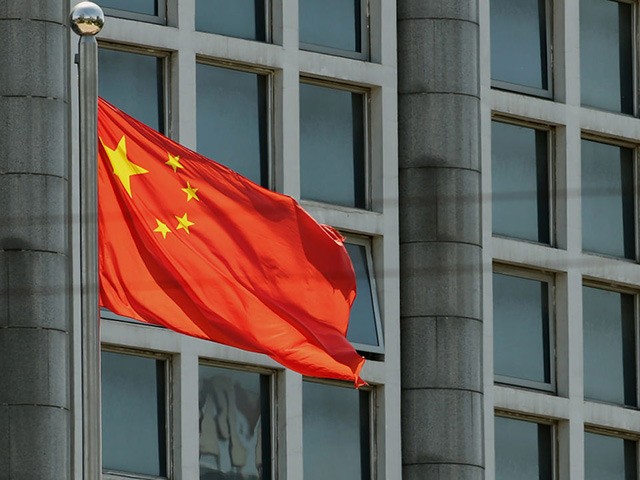Beijing uses its Belt and Road Initiative (BRI) infrastructure projects in Africa to embed Chinese surveillance technology into government buildings and telecommunication networks, according to a report published Wednesday by the Heritage Foundation.

This enables the Chinese Communist Party (CCP) to spy on and better manipulate top government officials, furthering its influence across the continent and throughout the world.
In Africa, Chinese contractors have built at least 186 government buildings and at least 14 “sensitive intra-governmental telecommunication networks.”
In addition, the Chinese government has donated computers to at least 35 African governments in recent years.
“[A]t least 40 of Africa’s 54 countries have a government building constructed by a Chinese company,” according to the report.
The danger of China’s access to official African government buildings became clear in 2018 when reports surfaced that Beijing had been spying on the African Union (AU) headquarters building it constructed for at least the past five years.
[S]ervers installed by the Chinese telecommunications giant Huawei in the African Union headquarters were daily uploading their content to servers based in Shanghai, China.
An inspection of the building—built by the state-owned China State Construction Engineering Corporation—also uncovered listening devices hidden throughout the building.
Although the CCP’s ruthless spying tactics are well established – especially with regard to its stealing technology and intellectual property from the West to build up its own formidable tech industry – the systematic espionage by China in Africa stands out. This is due to Beijing’s extensive and numerous BRI projects there, which allow China unprecedented access to sensitive government data.
By requiring African nations to use Chinese contractors to build the infrastructure – in this case, government buildings and telecommunication networks – Beijing provides itself with a unique opportunity to implant Chinese surveillance technology into the projects from the ground up.
According to the report, China’s outsized presence on the African continent, of which it is the single largest creditor, provides Beijing with “better surveillance access to Africa than anywhere else.”
In recent years, Africa’s internet and cellular industries have been dominated by Huawei, China’s premier telecom giant. The company has been contracted to help construct a vast amount of Africa’s telecommunication backbone.
At the behest of the CCP, Huawei has dutifully embedded its signature “safe city system,” a monitoring apparatus used by China to spy on its own citizens, into the cyber networks of certain African nations.
According to the report, “Chinese law requires that internet companies cooperate with the Chinese government to reduce users’ anonymity. Chinese government documents reveal that data collected from ‘smart city’ technology is sent back to China for analysis that helps the CCP in its public diplomacy efforts.”
The report details Huawei’s prevalence in Africa, which continues to grow:
Huawei has built more than 70 percent of the 4G telecom networks in Africa and is proceeding with plans to deploy 5G networks on the continent. Huawei, ZTE (another Chinese telecommunications giant), and other Chinese telecoms have built and/or equipped at least 14 government networks, including dedicated military and police telecoms systems.
In Uganda, Huawei has secured several major contacts in recent years, building the majority of the country’s 3G and 4G cellular towers.
In 2018, authoritarian ruler Yoweri Museveni’s government contracted Huawei technicians to hack into opposition leader Bobi Wine’s personal cell phone data. Government security forces used the data to carry out a surveillance operation on the politician that resulted in his capture and physical torture.
According to the report, “[t]he risk to U.S. companies [by the CCP] is perhaps higher than it has ever been.”
Over the past few years, China has increased its espionage of U.S. technology and intellectual data, stealing America’s commercial secrets as part of a greater objective known as “Made in China 2025.”
The stratagem, proposed by Chinese dictator Xi Jinping, aims to “lessen Chinese dependence on Western technologies, and gain leverage against Washington in the ongoing trade war,” according to the report.
Systematic espionage remains one of the CCP’s key weapons in its escalating war against the West, whose ultimate goal is to enact a global shift in power from the U.S. and Western nations to China and its Communist party system.